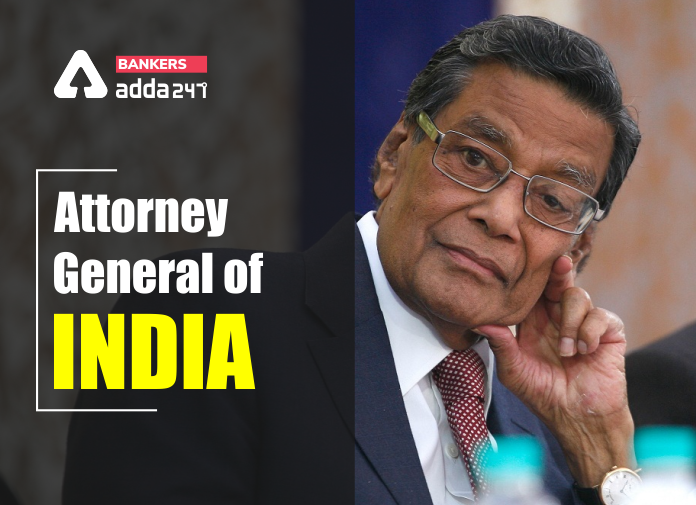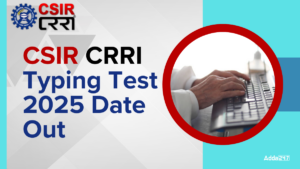One of the highest official in India is the Attorney General of India who is the highest law officer of the country, as mentioned by Article 76 of the Constitution of India. The Attorney General of India is appointed the President of India. He/she is also the chief legal advisor to the Government of India, and therefore, acts as the advisor of the union government on all legal matters. He also performs all the other duties of a legal advisor that are advised to them by the President. The Attorney General of India is also the primary lawyer who represents the Union Government in the Supreme Court of India.
Practice With,
| Designation | Attorney General of India |
| Current Position Held By | K. K. Venugopal |
| Appointed By | President on advice of Union Cabinet |
| Role | Works as the chief legal advisor to the government and is primary lawyer in the Supreme Court of India. |
| 1st Attorney General of India | Motilal C. Setalvad |
Appointment of the Attorney General of India
The Attorney General of India is appointed by the country’s President. The President appoints a person who has the qualifications to be the Judge of Supreme Court, in addition to the following other qualifications:
- He/she should be a citizen of India.
- He/she must have completed either five years as the judge of the High Court of any Indian state or ten years as a High Court advocate.
- He/she must be a distinguished jurist.
Also Read,
| List of Presidents | List of Prime Ministers | Largest State of India | Governers of RBI |
| What is PMJDY ? | List of Cabinet Ministers | National Security Act | Chief Election Commissioner of India |
Term of the Attorney General
The Attorney General of India does not have a fixed term of office. There is no specified tenure mentioned in the Constitution as well, in addition to the procedure or ground in which an Attorney General could be removed from their post. However, the Constitution does mention that:
- The Attorney General can be removed from their post by the President at any time.
- The Attorney General can quit if they submit their resignation to the President only.
- Since an Attorney General is appointed by the President of India on the advice of the Council of Ministers, he/she is removed from their post when the Council is either replaced or dissolved.
Role of the Attorney General
As the Chief Law Officer of India, the Attorney General has the following roles to fulfill:
- He/she advises the Union Government on all legal matters referred by the President.
- He/she performs all the other duties of a legal advisor that are advised to them by the President.
- He/she discharges any function that has been conferred on them by any law or the Constitution.
- He/she has to appear in the Supreme Court on the behalf of the Government of India if it is related to any legal case.
- He/she has to represent the Union Government in any reference made by the President of India to the Supreme Court under Article 143 of the Constitution of India.
- He/she also has to appear in the High Court if any case related to the Government of India is going on.
Limitations of the Attorney General
The Constitution of India does impose a few limitations on the Attorney General which he/she should keep in mind while performing their duties. These limitations are:
- They should not hold a brief or advise against the Government of India.
- Similarly, they should not hold a brief or advise in case they are called upon to advise for the Indian Government.
- They should not defend any accused person/s in criminal prosecutions without seeking the permission of the Government of India.
- They should not accept an appointment as a director in any corporation or company without seeking permission and subsequent approval of the Indian Government first.
Also Read,
| List of Presidents | List of Prime Ministers | Largest State of India | Governers of RBI |
| Chief Election Commissioner of India |
Make in India | Fundamental Rights | What is PMJDY? |
List of the Attorney Generals of India
Right from the creation of the Constitution of India, the country has seen 15 Attorney Generals till now. They are:
| Attorney General | Term |
|---|---|
| M. C. Setalvad | 28 January 1950 – 1 March 1963 |
| C. K. Daphtary | 2 March 1963 – 30 October 1968 |
| Niren De | 1 November 1968 – 31 March 1977 |
| S. V. Gupte | 1 April 1977 – 8 August 1979 |
| L. N. Sinha | 9 August 1979 – 8 August 1983 |
| K. Parasaran | 9 August 1983 – 8 December 1989 |
| Soli Sorabjee | 9 December 1989 – 2 December 1990 |
| G. Ramaswamy | 3 December 1990 – 23 November 1992 |
| Milon K. Banerji | 21 November 1992 – 8 July 1996 |
| Ashok Desai | 9 July 1996 – 6 April 1998 |
| Soli Sorabjee | 7 April 1998 – 4 June 2004 |
| Milon K. Banerji | 5 June 2004 – 7 June 2009 |
| Goolam Essaji Vahanvati | 8 June 2009 – 11 June 2014 |
| Mukul Rohatgi | 19 June 2014 – 18 June 2017 |
| K. K. Venugopal | 1 July 2017 – present |
Click Here to Register for Bank Exams 2020 Preparation Material
Visit Achieversadda.com and participate in discussions with other aspirants and achievers. Get answers to your queries and connect with others on Achieversadda.com
| SBI PO 2020 | IBPS PO 2020 | SBI Clerk 2020 | IBPS Clerk 2020 |
| RBI Grade B 2020 | RBI Assistant 2020 | LIC AAO & AE | SEBI Grade A 2020 |
Frequently Asked Questions
Q. Who was the first attorney general of India?
Motilal C. Setalvad
Q. Who was the longest serving attorney general of India?
Motilal C. Setalvad (1884–1974) was the first and longest serving attorney general of India.
Q. Who is the current attorney general of India?
K. K. Venugopal is the 15th and current attorney general of India.
Q. What is the role of attorney general of India?
The attorney general is the highest law officers of the nation and assists the government in legal matters.
Q. Who is the present Chief Justice of India?
Sharad Arvind Bobde is the current Chief Justice of India.



 Weekly Current Affairs One Liners 23rd t...
Weekly Current Affairs One Liners 23rd t...
 CSIR CRRI Typing Test 2025 Date for JSA ...
CSIR CRRI Typing Test 2025 Date for JSA ...
 Can Final Year Students Apply for SBI PO...
Can Final Year Students Apply for SBI PO...


